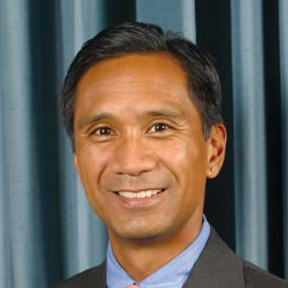When the U.S. Army’s 4th Stryker brigade combat team crossed the border into Kuwait last month, President Obama hailed the occasion as the end of an era.
“We are keeping the promise I made when I began my campaign for the presidency,” the president proclaimed. “By the end of this month, we will have removed 100,000 troops from Iraq and our combat mission will be over.” And on Tuesday night, he drove the point home in his address to the nation.
The president was technically correct. But the story is far from over.
The stated rationale for the U.S. withdrawal was to avoid “an occupation of undetermined length, with undetermined costs, and undetermined consequences.” With 50,000 U.S. troops still there, however, the withdrawal is a faux exit. Until all U.S. troops—combat or otherwise—have vacated Iraq, we are left with an occupation of undetermined length, with undetermined costs and undetermined consequences.
To begin, 50,000 soldiers is not insignificant. That’s roughly the equivalent of three divisions or 10 brigades. They may not be designated as combat troops, but they still wear uniforms and carry weapons—which will not be lost on the civilian population. Imagine if there were 50,000 armed foreign soldiers in the United States. It’s not likely the American public would take kindly to such an occupation. So why should we assume the Iraqis will?
The truth is that occupation is occupation—it doesn’t matter if it’s 50,000 troops or 150,000 troops. And the president hasn’t set a timetable for when the residual military advisers will be out of the country. Until then, they will continue to be a lightning rod—not just for Iraqi insurgents, but for radical Islamists everywhere.
One of the most important lessons of 9/11, which we apparently still haven’t learned, is that the United States was targeted, Osama bin Laden has claimed, because U.S. military forces were in Muslim countries (at the time, 5,000 U.S. troops in Saudi Arabia). Continuing to occupy Iraq—no matter how “small” the force—gives credence to the accusation that we are waging a war against Islam. This rings especially true to many Muslims with the surge in Afghanistan bringing troop strength there to more than 90,000.
It would certainly be better for the Iraqi people if their country was not plagued by violence. But local threats to the Iraqi government are not threats to the United States. Insurgents and terrorists in Iraq do not have the global reach al-Qaeda had on 9/11 when it attacked the World Trade Center and Pentagon.
Moreover, the United States is not the target of Iraqi violence. And while it might be preferable for Iraq to be a stable democracy, the only requirement for U.S. national security is that the Iraqi government—whatever its form and composition—not harbor or give aid to al-Qaeda or any other terrorist organizations that would and could attack the United States.
In the final analysis, keeping troops—even as military advisers—in Iraq undermines U.S. security. Drawing down from the 140,000 troops that were deployed in Iraq when President Obama took office in January 2009 to 50,000 today is significant progress. But bringing home the last 50,000 troops is just as important—if not more so.







